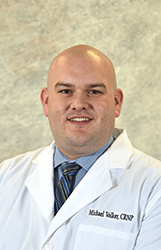By: JOSE ZARZUELA, M.D.
Suppose there was a miracle drug that could boost your mood and energy, reduce your weight, prevent serious illness, and even help you sleep better. Would you take it?
Good news: The miracle drug is real. It’s called exercise.
Your body needs regular physical activity to work right and feel good. People who are active tend to have fewer health problems. But people who spend most of their time just sitting weaken their bodies. And if a sedentary lifestyle is compounded with overeating, smoking, and too much alcohol, you greatly increase your risk for heart disease, high blood pressure, diabetes, and other serious issues.
More good news: You don’t have to spend hours at the gym. Something as simple as a brisk daily walk gives you physical and emotional benefits. When you head out for a walk, or any other type of moderate exercise:
• Your heart pumps more oxygen throughout your body. This helps lower your risk of heart diseases such as high cholesterol, coronary artery disease, and heart attack.
• Your body releases immune cells that find and destroy dangerous intruders (such as viruses) and defective cells (that can cause disease).
• Your brain produces more dopamine, a chemical that improves your mood and makes you feel more relaxed.
Regular exercise strengthens your heart, muscles, and bones, leading to overall better health. It also provides these other benefits:
• Increased ability to focus, as well as better memory and decision-making.
• Better moods: Increased levels of dopamine produce a greater sense of well-being, as well as reducing anxiety and worry.
• Improved sleep. Exercise can help you to fall asleep faster and stay asleep longer.
Sound good so far? It gets better
• Exercise helps you manage your weight or lose pounds. It causes your body to burn more calories, and the more you burn the easier it is to control your weight.
• Helps your body manage blood sugar and insulin levels. Exercise can lower your blood sugar level and make your insulin work better. This can cut down your risk for type 2 diabetes, or if you already have it, exercise can help you manage it.
• Reduces your risk of some cancers. Studies show that regular physical activity can lower the risk of colon cancer 17%-30% and breast cancer risk 20%-30%.
How to get started
It doesn’t take much exercise to start boosting your health. Even small changes can help. You can take the stairs instead of the elevator. Walk down the hall to a coworker’s office instead of sending an email. Wash the car yourself. Park further away from your destination.
For most people, your goal should be to work up to at least 150 minutes per week of moderate intensity exercise, like a brisk walk. You could split that into 30 minutes a day, five days a week.
The resources below can help you get started. And if you haven’t been active for a while, it’s a good idea to consult with your health provider first.
• 10-Minute Workout (video)
• How to Start a Walking Program
• Ways to Exercise If You Hate to Work Out
 Dr. Zarzuela is a Maryland Primary Care Physicians partner and is certified by the National Board of Physicians and Surgeons for Internal Medicine and Sports Medicine. He sees patients in MPCP’s Pasadena office.
Dr. Zarzuela is a Maryland Primary Care Physicians partner and is certified by the National Board of Physicians and Surgeons for Internal Medicine and Sports Medicine. He sees patients in MPCP’s Pasadena office.






